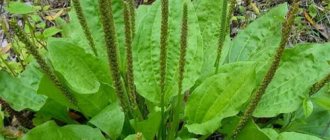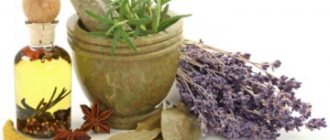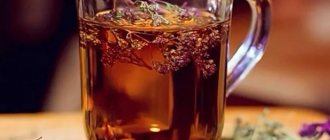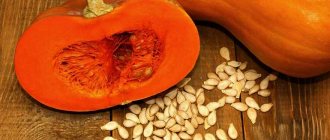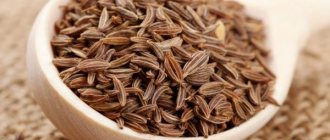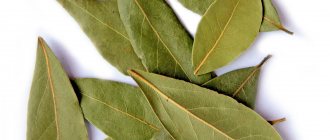From this article you will learn:
- How does constipation manifest in older people?
- What type of constipation can be diagnosed in an elderly person?
- What are the main causes of constipation in older people?
- What to do if an older person is constipated
- What should be the diet for constipation in older people?
- What laxatives to buy for constipation in an elderly person
- How constipation is treated with folk remedies in older people
Constipation is the name given to regular delays in bowel movements that last more than 2 days. Such violations are far from harmless, especially when it comes to older people. Constipation in an elderly person inevitably leads to stagnation and intoxication, and this, in turn, to a deterioration in general well-being, a feeling of depression, and a decrease in resistance to disease. Today, every second elderly person suffers to a greater or lesser extent from such an unpleasant illness as constipation.
How does constipation manifest in older people?
The regularity of bowel movements from 3 times daily to 3 times weekly is the established norm. Regularity of bowel movements less than 3 times weekly is considered constipation. In addition to the regularity of stool excretion, symptoms of constipation in an elderly person may include:
- infrequent (less than 3 times a week), difficult, painful stool with hard feces
- small amounts of stool (less than 35 g per day)
- hard stool
- incomplete emptying
- anorectal obstruction (retention during straining)
- facilitating bowel movements using manual intervention (digital evacuation, pressing on the pelvic floor)
Pharmacy drugs
In the pharmacy you can find both tablets or liquid concentrates containing laxative plants, as well as their preparations.
Herbal remedies that can be used for constipation
- Proctophytol . It is an antihemorrhoidal preparation. Ingredients: senna, buckthorn, coriander, yarrow, licorice. It has hemostatic, antispasmodic, anti-inflammatory and laxative effects. Available in filter bags containing 2 g of raw materials. Directions for use: Place 4 g of herb in a deep plate or mug, pour a glass of boiling water and leave for 15 minutes. Drink 150-200 ml of infusion at night. The effect is observed closer to the morning. The duration of the course should not exceed 7 days in a row. Can be used for hemorrhoids, when stool retention is extremely undesirable.
- Gastric collection No. 3 . It copes well with constipation and intestinal spasms that may occur against their background. Ingredients: nettle, buckthorn, valerian, calamus, mint. Produced in the form of filter bags of 2 g each. Method of preparation: pour boiling water over 2 filter bags and leave for half an hour. The infusion is consumed twice a day, half a glass: morning and evening. It is recommended to shake before use to remove sediment from the bottom. The duration of the course is no more than a week.
- Laxative collection No. 1 . Ingredients: buckthorn, nettle, yarrow. Available in packages of 100 g. Method of use: place 6 g of raw materials in a bowl, pour boiling water and place in a water bath. After 30 minutes, remove and cool. Take half a glass at night. The effect occurs after 8-12 hours, the duration of action directly depends on the state of the gastrointestinal tract of a particular person. The course should not exceed 7 days.
Be sure to read: Spastic constipation: signs and methods of treating pathology
Herbal laxative tablets
Products related to both medicines and dietary supplements:
- Senade (Senadexin). The active ingredients of Cassia aculifolia are sennosides A and B. Take 1 tablet at night. If there is no effect, it is possible to increase the dose to 2-3 tablets at a time. Relief is observed after 8-10 hours. Allowed with caution from 6 years of age.
- Phytolax. Available in the form of chewable tablets with a pleasant taste, which do not need to be washed down with water. Ingredients: senna, apricot, dill, plantain, dietary fiber. Take 2 tablets with meals in the evening. Allowed from 14 years of age.
- Fitoslabin. Tablets based on buckthorn, senna, mint. Taken only by adults, 2 tablets before bedtime. Course – 2-3 weeks.
- Frutolax. Available in capsule form. Ingredients: beets, prunes, figs, apricot, senna, fennel, lactulose. Approved for use from 14 years of age, take 2 capsules in the evening. Adults can increase the dosage to 4 capsules. Course – 2 weeks.
Senna-based tablets are considered “hard” laxatives, and uncontrollable diarrhea very often occurs. The act of defecation may be accompanied by painful spasms. It is best to use them once to avoid addiction.
Products based on other herbs or fruits are much gentler. They can be taken daily for 2-3 weeks, but there is also a chance of addiction, although not as high.
The appearance of “naturalness” is deceptive. Almost all herbal medicines have negative consequences, therefore they are prohibited until the age of 14 (except for senna - it can be used with caution from the age of 6). Herbal infusions are dangerous because you can easily exceed the dosage if you measure the raw materials incorrectly. This is especially true for plants that are not sold in pharmacies - they can be collected by mistake and have not a laxative effect at all, but a toxic one.
Be sure to read:
The procedure for performing an enema with a syringe to cleanse the intestines
What type of constipation can be diagnosed in an elderly person?
Everyone knows that older people often face the problem of constipation. Emptying disorders are divided into types, in strict accordance with which the course of treatment is selected. So, defecation retention is divided into the following categories:
- Chronic bowel movement . Sometimes it is enough to simply change your lifestyle to treat it. But there are cases when regular difficulties during emptying appear asymptomatically. In such cases, a comprehensive examination is required to identify the causes provoking constipation;
- Constipation in elderly bedridden patients. In such cases, older people have frequent problems with bowel movements. The main factor causing constipation in bedridden elderly people is the lack of physical activity. Another factor in the occurrence of constipation in older people is the use of potent medications. This type of constipation in an elderly person can be eliminated by adding physical activity and a balanced diet;
- Prolonged constipation. 60% of older people experience this type of constipation. Many reasons cause such disorders, but the main ones are insufficient amounts of fibrous foods, multiple sclerosis, high blood sugar and excessive use of medications with diuretic and laxative effects. Treatment of long-term constipation in older people is prescribed based on the results of an examination in order to identify exactly the cause that provoked bowel movements;
- Persistent constipation . This type of constipation is considered the most dangerous because it triggers the process of chronic intoxication. The cause of persistent constipation in older people may be a change in the structure of an internal organ, for example, in peristalsis. Persistent constipation in older people requires multifaceted therapy. In other words, we strongly do not recommend using only a laxative during treatment;
- Severe constipation. Many people can experience problems with bowel movements, but they are more common in older people. Elderly people with severe constipation experience unpleasant symptoms in the form of discomfort, pain, loss of appetite and a feeling of heaviness in the intestines. To eliminate the problem, we recommend stopping taking laxatives due to addiction to them, which causes problems in peristalsis. If severe constipation occurs in older people, do not be afraid of this. Simple lifestyle changes are all that is needed in this case.
Constipation in older people is a very common problem. Of course, defecation causes a lot of unpleasant sensations, but it should not upset you too much. Often, constipation in older people is not difficult to eliminate, because their occurrence does not indicate serious illnesses. Before starting treatment, we recommend that you consult with a doctor to prescribe appropriate diagnostics and determine the factor that caused the disruption of the bowel movement process.
Only after determining the cause of constipation in older people is it recommended to begin therapy. The course of treatment for constipation in older people should be accompanied by proper nutrition and increased physical activity.
- Recommended articles to read:
- Social services for older people
- Diseases of old age
- Valuable tips on how to choose a boarding house
Rules for taking medicinal herbs
The folk method, like the medicinal one, cannot be used uncontrollably. You should consult a doctor who will tell you the right choice.
- Medicinal mixtures, decoctions, and infusions should be used only in cases where the natural method of excreting feces is impossible. Intestinal cramps, lack of nutrients.
- Therapy for constipation does not depend on the amount of herbs used in the collection. The effect can be obtained from one component and not from 10. It is advisable to choose one drug and use only it. Or you can make a collection of different functional herbs: laxative - carminative, laxative - antidiarrheal.
- The use of natural medicinal remedies should not be prolonged. Ideally 2-3 days. The body must not be allowed to become accustomed to the work of medicinal herbs. The result is a complete failure of the internal organs to work.
- Having chosen a particular drug, you need to find out all the nuances of use: indications, contraindications, side effects.
Main causes of constipation in older people
With age, the motor function of the gastrointestinal tract noticeably weakens (especially in the area of the colon), which leads to difficulties with stool ejection. The sensitivity of the anal sphincter also decreases, as a result of which the urge to defecate becomes less pronounced. These reasons become the main factors provoking constipation in older people. In addition, common problems with the gastrointestinal tract are caused by:
- low water consumption;
- unhealthy diet (insufficient amount of dietary fiber in food);
- sedentary lifestyle;
- taking medications regularly.
Sometimes chronic constipation in an elderly person is observed due to certain diseases. For example, voiding disorders occur in patients with:
- atherosclerosis;
- parkinsonism;
- diabetes mellitus;
- depression.
The course of treatment for constipation in an elderly person is recommended to be carried out under the supervision of doctors in order to promptly identify problems arising as a result of complications during the digestion of food.
Read material on the topic: Health of older people
Constipation in the elderly: what to do
Non-drug therapy for constipation is intended to normalize the motor function of the intestinal tract and the thickness of stool:
Development of the “Toilet” reflex
Defecation is partly a conditioned reaction . Many people who do not have any difficulties with bowel movements go to the toilet at the same hours - in the morning (after waking up or after the first meal). At this time, the functions of the intestinal tract are most active.
To prevent constipation, older people are advised to sit on the toilet every day, 20-30 minutes after a hearty breakfast, and strain to empty their bowels.
- The first few times it is allowed to use laxative suppositories.
- 200 grams of cool juice before breakfast on an empty stomach will trigger the gastric reflexes.
- A cup of hot coffee will also help stimulate contractions of the intestinal tract.
With the help of this “Toilet” training, after 3-5 days, older people (including those with neurological diseases) without using drugs with a laxative effect develop a strong reflex to bowel movement.
Dietary fiber
The food we eat is symbolically divided into two components: nutrients and dietary fiber. Nutrients from food are absorbed by the small intestine, and undigested fiber is transported to the large intestine.
Lack of dietary fiber means lack of feces. And the absence of feces means the absence of bowel movement.
Based on this, it is imperative to increase the amount of fiber consumed by eating:
- vegetables rich in plant fibers: beets, carrots, pumpkins, zucchini;
- bread made from wholemeal flour, dietary varieties of bread with wheat bran;
- porridge made from buckwheat, pearl barley and oatmeal;
- nuts and seeds;
- fruits and berries, which, in addition to fiber, also contain a complex of organic acids and sucrose, which stimulate the intestines;
- fermented milk products (fresh kefir, yogurt), which also activate the intestinal tract.
- bran and fiber (if you introduce additional amounts of dietary fiber into the diet, then in more than 90% of older people, the use of drugs with laxative effects is significantly reduced.
Recommended:
- Increase the amount of fiber gradually. Uncontrolled increase in fiber in the diet leads to the formation of excessive gases and bloating of the abdomen.
- Increase the volume of liquid you drink. Otherwise, increasing your intake of water-absorbing fiber without drinking the right amount of water will only lead to worsening constipation.
Physical activity
Research shows that constipation in older people is most often caused by a sedentary lifestyle.
Consequently, the more physical activity (walking, swimming, exercise, vigorous movements on the stairs), the better the effect will be (and even more so, if you follow the right diet).
Sometimes autogenic training and psychotherapy sessions provide excellent results.
Abdominal massage
Good results can also be achieved through abdominal massage, a simple procedure that older people can perform themselves.
Every morning, when you wake up, without getting out of bed, massage your abdominal area with simple stroking movements for 10 minutes.
Read material on the topic: Exercises for older people
Laxative plants
Laxative herbs for constipation act on the gastrointestinal tract gently and naturally, forcing the body to independently perform its functions, only slightly providing assistance. Unlike medications, natural remedies do not have negative effects on other internal organs and do not interfere with the functioning of body systems.
Senna holly
The leaves of this plant are beneficial for the intestines. Under the influence of the product, fecal matter softens, bowel movements return to normal, and the digestive system is restored. Prescribed for constipation in adults. For children who have impaired bowel movements, senna comes first.
Senna holly
Today you can find hay not only in the form of dry raw materials, but also sold in tablet form.
- Substances contained in the dry leaves of the plant have an irritating effect on the mucous membrane of the digestive tract. As a result, all organs responsible for digesting food begin to activate, and the food bolus moves through the canal. The intestines are emptied naturally, without creating any discomfort. It is recommended to use hay in adults for the treatment of atonic constipation. Doctors warn patients against treating spastic constipation without consulting first, since treatment for colonic motility disorders requires constant medical supervision. However, senna is non-toxic and can treat constipation, hemorrhoids and bleeding.
- The herb, produced in tablets, has a beneficial effect on the gallbladder and liver, cleanses the body of sludge and toxins. The person notes the return of appetite and normalization of metabolism. If it is necessary to act only on the digestive system, small doses of the herb are sufficient. If a person is faced with the task of cleansing the intestines, he will need to undergo a therapeutic course with an increased dose.
Pregnant women should take senna very carefully after talking with their doctor. It is believed that the herb helps cleanse the intestines before childbirth and helps cope with constipation. But there is a danger of side effects: spasmodic phenomena in the intestines and contractions of the uterus.
Despite the medicinal properties of senna, there is a list of contraindications when use is strictly prohibited:
- Lack of potassium in the body becomes a serious obstacle to the use of the herb. The treatment does not lead to the desired result and worsens the patient’s condition.
- When signs of dehydration appear, taking senna for constipation will make the situation worse.
- Gastrointestinal diseases. Gastritis, colitis. Problems in the intestines associated with obstruction and internal bleeding, disturbances in the functioning of the gastrointestinal tract should be discussed with a doctor.
- Damage to the cardiovascular system, dysfunction of the genitourinary system, cystitis.
Side effects that occur if doctors' recommendations are not followed:
- Painful and spasmodic phenomena in the intestines. In this regard, there is a ban on the use of senna during pregnancy due to the threat of miscarriage.
- Unfortunately, long-term use leads to addiction in the body. Independent functioning of the stomach will not be possible without another dose of herbs.
Alder buckthorn, bark
Krushin tree, another name is wolf berries. Grows in central Russia, Ukraine, Crimea, Kazakhstan. Available in various forms of release in pharmacies:
- Pills. Available in bottles of 50 tablets.
- Shredded bark. Sold in cardboard packages weighing 50 and 75 g.
- Brewing bags 1.5-2 g – also in a cardboard box.
Buckthorn preparation has many beneficial properties:
- Sedative. Calms, relieves irritability, has a mild hypnotic effect.
- Laxative. Helps in gently cleansing the intestines of stagnant feces.
- Antiviral. Once in the body, it helps fight viruses.
Viruses attack a cell
- Antibacterial. Helps the intestines fight pathogenic microflora.
- Antispasmodic. Relieves spasms of the digestive tract and helps food pass through the channels unhindered on its way to exit.
- Antihelminthic. Helps remove various parasites and worms from the body.
- Anti-inflammatory. Once in the intestines, it envelops the mucous membrane of the organ, preventing the negative effects of irritants. Reduces the effect of inflammatory processes.
Althaea officinalis
The root of the herb is used to treat constipation in children. It contains mucus, which helps soften fecal matter and eliminate it from the body, and relieves symptoms of bloating.
Aloe
The Aloe plant or yarrow can help restore intestinal functions, its motor activity, and relieve constipation.
Actions that the drug has on the digestive organ:
- Restoration of motor activity. By creating an irritating effect, aloe makes the intestines work faster and move the food bolus towards the exit.
- Feces become more rare. Thanks to the beneficial substances in the plant, feces become more plastic, liquefy and easier to pass through the anus.
- The inflammatory process occurring in the intestines is reduced. Creating a positive effect on the digestive tract, it is prescribed to patients suffering from colitis.
Linen
Flax seeds are used against constipation. They create a protective layer on the intestinal mucosa and, with a gentle effect, remove feces through the anus. Flax takes part in the treatment of gastrointestinal ulcers, gastritis, and esophagitis.
Dandelion
In folk medicine, dandelion root is used to treat defecation disorders. It copes with feces stuck in the intestines. The reason is weak functioning of the rectum. The medicine is indicated for those suffering from gastritis, constipation, and atony of the large intestine.
Patients with high acidity, kidney stones and gall bladder should take a decoction of dandelion root very carefully.
What should be the diet for constipation in older people?
Whatever the cause of constipation in older people, proper nutrition will be beneficial in any case. It is important to take into account the age category, level of well-being, and characteristic features of constipation.
Constipation in an elderly person is in most cases atonic in nature (that is, arising due to the “weakness” of the rectum). This means that generally accepted advice about increasing fiber in your diet should be taken with caution. Otherwise, there is a risk of further aggravating stool instability.
In general, the recommendation to consume a sufficient amount of foods containing fiber is also justified for elderly patients, because in dosed amounts fiber improves the motor function of the intestinal tract. What foods are suitable for preventing constipation in older people? We are talking about the following products:
- vegetables: zucchini, carrots, beets, pumpkin, cauliflower, cucumbers;
- fruits: plums, apricots, apples, bananas, peaches;
- berries: gooseberries, strawberries, black currants, raspberries;
- dried fruits: prunes, dried apricots, raisins;
- cereals: buckwheat, oatmeal, millet cereals;
- fermented milk products: kefir, yogurt, acidophilus, natural yogurt;
- sweets: fruit jelly, marshmallows, marmalade;
- lean meat, fish and poultry.
To avoid constipation in an elderly person, food requires appropriate cooking. For example, it is advisable to prepare cereals so that the porridge remains crumbly. When preparing dishes from meat, poultry and fish (as well as from other products), it is better to cook the products in whole pieces, without finely chopping them.
What to exclude from your diet if you have constipation
Along with products that stimulate gastrointestinal motility, there are products that make defecation difficult. Of course, it is recommended to remove the latter from the list of foods consumed.
Here is a list of “enemies” of normal bowel movements. Avoid:
- vegetables: beans, lentils, peas, garlic, celery, peeled potatoes;
- berries: lingonberries, blueberries;
- cereals and products containing cereals: white rice, semolina, white bread, pasta;
- dairy products: cheese, ice cream, cow's milk;
- sweets: butter and yeast baked goods, milk chocolate;
- fatty meats, fish and poultry;
- smoked products: meat, cheese, etc.
When and how often to eat if you are constipated
Surprisingly, constipation is “afraid” of following a diet. Try to eat at the same hours every day, and after a while the internal mechanisms that regulate intestinal activity will begin to work. Eating according to the schedule will awaken the reflex, which will help the contents to be transported smoothly and painlessly through the intestinal corridors.
If we talk about how often you need to eat, then for constipation it is recommended to eat often in small portions. In other words, you need to eat at least 4 times a day. Thus, the body will process incoming food more efficiently.
Elderly people suffering from constipation are recommended to start the day with a tablespoon of vegetable oil on an empty stomach, which will be the best stimulation of the gastrointestinal tract. The oil activates contractions of the walls of the gallbladder and intestines. However, it is worth remembering that this recommendation is not suitable for patients with gallstone disease.
A few words about the drinking regime during constipation in an elderly person. The general rule during constipation is to drink more water. But not every liquid is suitable for constipation. We recommend drinking the following fluids during constipation:
- plain water;
- fruit and vegetable juices;
- mineral water;
- fermented milk drinks.
In total, we recommend drinking up to 2.5 liters of the required fluid throughout the day. From this volume – 3 glasses of mineral water on an empty stomach 60 minutes before meals 2-3 times daily.
What drinks are best avoided during constipation:
- strongly brewed black and green tea;
- coffee and cocoa;
- full fat milk;
- alcoholic drinks.
It must be remembered: if the correct diet does not give results, and there is confidence that constipation in older people is not caused by certain diseases, defecation disorders must be solved with the help of effective and safe medications.
Read material on the topic: Nutrition for the elderly
Contraindications and side effects
Herbal laxatives are effective, but not for everyone. This treatment method is not recommended for children and pregnant women, as there may be an unpredictable reaction. Even a safe laxative herb can cause allergies. In addition, there is a risk of side effects from the gastrointestinal tract - nausea, bloating, soreness.
Herbs for constipation have the following contraindications:
- exacerbation of gastrointestinal diseases;
- acute hemorrhoids, anal fissures;
- heart and vascular diseases;
- pregnancy, childhood;
- acute inflammatory diseases in the body.
The presence of such contraindications does not exclude the use of plants, but prior consultation with a therapist or gastroenterologist is necessary. You need to take herbs for constipation according to the instructions. Exceeding the dosage will not speed up the onset of the effect, but increases the risk of side effects.
Constipation in an elderly person - treatment
Elderly people often do not attach much importance to problems with bowel movements and choose only laxatives to combat constipation. However, to establish the true cause of constipation in an elderly person and select a treatment package, you need to consult a specialist. To solve the problem of constipation, you first need to identify the causes that disrupt the bowel movement process. The complex treatment of constipation in older people should include the use of drugs with a laxative effect, and changes in the patient’s lifestyle, in his diet, and in the revision of previously prescribed medications for the treatment of other diseases and complications. In addition, physiotherapeutic procedures may be prescribed (if there are no contraindications to them). The above procedures, including the use of drugs with laxative effects, are prescribed by a specialist who comprehensively assesses the health of an elderly person.
Only a patient diagnosed with chronic transit dysfunction, which cannot be eliminated by any other treatment methods, can be operated on surgically. He may be indicated for a subtotal colectomy and ileorectal anastomosis.
Surgical intervention is also intended for a patient with an identified rectocele that changes the functions of the gastrointestinal tract.
The postoperative period may be accompanied by minor problems with gastrointestinal obstruction, periodic or constant constipation, diarrhea, and urinary incontinence.
Surgical correction is not prescribed for constipation resulting from anorectal dysfunction.
The complex of therapy for constipation in an elderly person also includes physiotherapeutic procedures. If an elderly person has no contraindications, then he will benefit from:
- electrophoresis sessions;
- mud wrap;
- phototherapy.
Mandatory recommendations for constipation in older people are:
- change your lifestyle;
- increase physical activity.
Benefits of Herbal Treatment
Herbs for constipation have many positive aspects in treatment. It is worth noting their versatile action. They have a positive effect on the stomach, intestines, liver, urinary and hepatobiliary systems.
Some folk remedies that are used to treat inflammatory diseases can also be used to normalize intestinal function.
Popular laxative herbs for cleansing the gastrointestinal tract:
- plantain - few people know about its laxative effect, but it really speeds up the process of defecation, helps to cope with constipation, entering the gastrointestinal tract, it increases the volume of feces;
- chamomile - found in any home, I use it for cleaning, the plant helps with spastic constipation, eliminating spasms and pain;
- dill - the seeds will be useful for the complex treatment of gastrointestinal diseases;
- dandelion - this plant is especially useful for the elderly, it improves digestion, has a choleretic effect, and helps eliminate toxic substances.
Laxatives for constipation in older people
For older people suffering from constipation, medications that have a mild laxative effect are first prescribed. These remedies help eliminate the discomfort and nagging pain that occurs with constipation.
There are many laxatives that can help cope with this problem. They contain components designed for normal bowel function and natural bowel movements.
- drugs that chemically irritate the receptor apparatus of the intestinal tract. We are talking about senna, rhubarb, gutallax, phenolphthalein, castor oil, etc.
- drugs that inhibit water absorption (preparations with sodium sulfate, magnesium sulfate, Carlsbad salt, etc.)
- foods that increase the volume contained in the intestines. We are talking about bran, agar-agar, methyl cellulose, seaweed.
- stool softeners. These are preparations with vaseline oil, almond oil, liquid paraffin, etc.
What types of laxatives should older people avoid taking?
It may seem strange, but the greatest danger comes from senna and its drugs: Senade and Senadexin.
Firstly, with prolonged use, the effect of antiarrhythmic drugs decreases and addiction occurs. Secondly, diuretics and glucocorticosteroids increase the excretion of potassium ions from the body, which has a negative effect on the heart. Be sure to read:
Methods for getting rid of fecal stones in the intestines: enema, laxatives, diet and more
Magnesium sulfate, beloved by many older people, is very insidious. Magnesium ions accumulate in large quantities in the myocardium, liver and kidneys, which is why its use is prohibited in case of chronic heart and kidney failure, heart block. In addition, it reduces the effectiveness of many “heart” drugs.
Treatment of constipation with folk remedies in the elderly
How to treat constipation in older people with folk remedies? Such an unpleasant illness as constipation can occur in an elderly person for a variety of reasons. This must be taken into account when choosing a folk remedy as a treatment. Since there are so many recipes, it makes more sense to group them. So:
Salt
Salt is an osmotic laxative, that is, firstly, it retains water in the intestines, and secondly, it additionally attracts water from blood plasma and adipose tissue. This leads to softening of the stool and its rapid elimination.
You need to know that simple rock salt used in cooking is not suitable for treating constipation. It is subjected to special treatment with anti-caking chemicals, and this is very harmful to the body. Himalayan pink salt or sea salt are best.
If we are talking about the prevention and treatment of constipation, you need to use a moderately concentrated saline solution; in more severe cases, when a quick solution to the problem is required - within an hour or two - highly concentrated salt water is used. There is a lot of information on this topic, it is described in detail in the articles:
- Salt water as a means of treating constipation and quickly cleansing the intestines (recommendations, contraindications, recipes, principle of action).
- Epsom salt (magnesia) – treats constipation faster and more effectively than regular salt.
Water
To prevent and treat constipation, it is often recommended to drink large amounts of water: in the morning on an empty stomach - 2 glasses of cold water and in the evening - 2 or 3 glasses of warm water. If the cause of constipation is a lack of fluid in the body or, more simply, dehydration, then this advice will be very helpful.
However, older people often deliberately limit their fluid intake, warning themselves against the troubles associated with urinary incontinence; Another reason for restriction is problems with the heart or kidneys.
It is also necessary to take into account that an older person changes his diet, preferring crushed and processed food (this can be caused by a problem with swallowing or simply lack of teeth). This food does not contain fiber, so the water you drink will quickly be absorbed into the walls of the small intestine. Without reaching the large intestine, it will not give the desired result, but will create additional stress on the heart and kidneys. Therefore, it is better not to use this treatment method.
Soda
Soda in general is a universal folk remedy, very widely used in the case of constipation in older people, as well as for abdominal pain. The use of sodium bicarbonate promotes the rapid and easy release of excess air from the intestines. The pain from bloating in the abdomen will gradually go away.
Baking soda creates a more alkaline environment in the stomach, which neutralizes stomach acid and allows stomach contents to pass gently through the intestines.
A simple recipe: dissolve a teaspoon of soda in a quarter glass of warm water. Drink the resulting solution.
There are many other baking soda treatment recipes. But illiterate and excessive use of it leads to a gross disruption of the acid-base balance in the body, so before starting treatment, you need to know the principle of action of soda.
Lemon, Vitamin C, Honey and Apple Cider Vinegar
The simplest home remedy to cure constipation in older people is lemon juice, which stimulates intestinal motility. In addition, lemon juice is considered an excellent antioxidant, which has a rejuvenating effect and strengthens the immune system.
Lemon juice goes well with honey, which also has a mild laxative effect and improves the taste of the juice. It is useful to add salt to the drink on the tip of a knife (the healing effects of salt for constipation are described above).
It is better to drink the drink with a straw.
Honey is so rich in vitamins, minerals and beneficial effects on the body (for example, its mild laxative effect is widely known) that you can safely add it to various dishes for the treatment and prevention of constipation, to enrich the taste and for the general benefit of the body (except in the case when you are allergic to honey).
If consuming honey is contraindicated, you can try dark maple syrup as a mild laxative.
Since ancient times, traditional healers have known the universal healing properties of apple cider vinegar.
Considering the above, we offer a medicinal product consisting of the above ingredients:
- 1 glass of water.
- 1 tablespoon squeezed lemon juice or teaspoon apple cider vinegar.
- 1 tablespoon honey or dark maple syrup for sweetening.
- ½ teaspoon salt optional.
Take the prepared drink in the morning on an empty stomach, 30 minutes before the first meal or before bed on an empty stomach.
It is best to drink the drink using a cocktail straw. This creates an additional great effect!
A high dose of vitamin C quickly and safely initiates the therapeutic mechanism, providing both laxative and antioxidant results. Vitamin C is distinguished by its water-soluble property, so its excess is easily excreted by the body. You need to start with a few grams daily, increasing the dosage as needed. Having achieved the result, you will need to return to the generally accepted daily intake of vitamin C. It fights perfectly against chronic constipation in older people.
We caution against excessive consumption of recipes with vitamin C for those who have high stomach acidity.
Dried fruits
Dried fruits can be called the most delicious remedy for treating constipation in an elderly person at home. They are known for their natural laxative effect, which is achieved due to the large amount of dietary fiber and sorbitol. Sorbitol contained in dried fruits facilitates bowel movements due to the fact that the body does not absorb these natural carbohydrates; sorbitol, by attracting water, helps feces to be better transported along the intestinal walls, increases pressure on the anal sphincter, causing the urge to stool. We caution against excessive consumption of dried fruits with a high sorbitol content, which cause excessive gas formation and excessively dilute the stool.
Herbs and herbs for constipation
To treat constipation, traditional medicine offers many herbal-based recipes. Elderly people need to use such recipes with caution, because herbs, like other medicines, also have their own indications and contraindications. Therefore, you need to carefully follow the dosage.
The most famous folk laxatives are senna and cascara sagrada (joster, buckthorn). Their use reduces sharp pains and cramps that accompany the use of many chemical laxatives. They are natural and safe, but it is recommended to use them occasionally.
Read material on the topic: Walking for older people
Gelatin and agar
Gelatin and agar also have an excellent laxative effect. Half a teaspoon of gelatin should be washed down with water (you can also add applesauce or any other fruit puree). Expect healthy, painless stools in the next 24 hours.
Aloe
The pulp of aloe (agagave) is rich in ingredients that cleanse the intestines and soften stool. Aloe paste has a stronger effect when it is possible to use the pulp of a plant grown on your own windowsill. You will need to carefully cut off the skin and scrape out the pulp with a spoon.
- Take two tablespoons of aloe pulp before bed, diluting it with a small amount of juice, for quick results in the morning.
- By adding a little honey, you will increase both the usefulness and taste of the medicine. For one tablespoon of aloe pulp, add one tablespoon of honey (you can also mix it with a small amount of lemon juice). This medicine should be stored in a cool place. You need to take it 1 tsp. 30 minutes before meals. Effectively cures chronic constipation in older people.
- Another recipe with aloe: add beet or grapefruit juice and coconut oil (1 tsp) to the aloe pulp. The product has a light refreshing taste and is used in the treatment of chronic constipation in the elderly.
Oil
Even a small amount of oil activates the secretion of bile and lubricates the intestines, facilitating the smooth transportation of feces. To do this, in the morning on an empty stomach (or at least 30 minutes before breakfast), you need to take a spoonful of one of the oils suggested below. These oils have a laxative effect and help in treating small ulcers in the gastrointestinal tract. To treat constipation, take a small amount of:
- linseed oil
- sea buckthorn oil
- olive oil
- castor oil
You need to take the oil intermittently: take a spoonful of oil for 2 days, skip 2 days.
- It is also recommended to mix 1 tsp. oil with 1 tsp. kefir and drink the product before bed.
Natural animal fats also help in the treatment of constipation in older people. We will provide detailed information about animal and vegetable oils, their usefulness and degree of harm, medical indications and contraindications separately.
Syrup
Beet molasses, also known as molasses, has long been considered a savior and cure for constipation in older people (both chronic and occasional). The reason for this good effect is the composition of molasses. It consists of iron, magnesium, potassium, calcium, vitamin B6, etc. Magnesium, for example, activates gastrointestinal motility, attracting water, and thereby helping with constipation. Beet molasses is an effective and tasty remedy that evokes a grateful response from the body.
- Mix 1 teaspoon of molasses with warm water, tea, milk, fruit or plum juice (optional).
If this amount was not effective enough, increase the dose to 1-2 tbsp. spoons, but you need to start with a small dose.
Beet molasses is very high in calories, so you don’t need to take it every day.
Intestinal bacteria
The gut needs healthy flora in order for its digestive system to function as it should. There are many pharmaceutical drugs (probiotics and prebiotics), the use of which is important and desirable for constipation in older people. However, do not forget about basic home remedies – probiotic products:
- natural yoghurts with a shelf life of no more than 2-3 days or made from yoghurt starter, which is preferable in terms of reliability
- natural kefirs
- cabbage pickles
Features of choice depending on the situation
Before thoughtlessly buying laxatives on the advice of neighbors or friends, it is worth understanding in what cases you should give preference to one or another drug.
Laxatives for daily use
The most popular products are those based on lactulose. It is not addictive and makes the intestines work independently. Being a prebiotic substance, it enhances the growth of beneficial microflora. In addition to the laxative effect, it has a positive effect on the absorption of calcium salts. More suitable for people suffering from chronic constipation, since the laxative effect appears after a few days, and not immediately.
Preparations based on lactulose are available in the form of syrups and emulsions:
- Duphalac;
- Good luck;
- Evict;
- Dinolak;
- Normaze.
Fast-acting laxatives
These include microenemas and suppositories, since they have an irritating effect directly on the rectum, without wasting time passing through the entire gastrointestinal tract. They are used in emergency cases when it is necessary to urgently and one-time empty the intestines. In cases of chronic constipation, they may be ineffective and are also addictive. The effect is observed within an hour.
Drugs used rectally:
- Microlax;
- Bisacodyl;
- Glycerin suppositories.
Mild laxatives
It is believed that drugs based on lactulose, macrogol and lactitol have the mildest effect. They do not irritate the receptors, so when taking them, cramps and pain in the lower abdomen are practically not observed. The laxative effect is observed after 1-2 days, after which, with regular use, stool becomes daily. There is no diarrhea, the feces simply become softer in consistency.
Preparations based on macrogol:
- Forlax;
- Osmogol;
- Lavacol;
- Realaxan.
Lactitol-based laxatives – Exportal.
Herbal laxatives
Contrary to the belief that herbal remedies are the most harmless, this is not entirely true. Many active substances found in medicinal plants have a rather harsh effect. This is mainly due to the fact that they are not so easy to isolate in the required and safe quantities. Especially when it comes to the raw materials themselves, and not the medicines in which they are contained.
Be sure to read:
Intestinal dyskinesia: types, causes, symptoms and treatment methods
They can be used in one-time cases, but on an ongoing basis they quickly become addictive. The action directly depends on the physiological characteristics of a particular organism. When using the herb or leaves, uncontrollable diarrhea often occurs due to inaccurate dosing.
The safest plant-based products:
- Castor oil;
- flax seeds;
- Phytomucil;
- Phytolax.
Read more: List of herbs with a laxative effect and preparations based on them
Laxatives for a bedridden elderly person
In this situation, it is necessary to take into account the general condition of the patient and remaining skills (especially swallowing). If a person is unable to swallow tablets and large quantities of syrup, it is better to use drops that are diluted in a small amount of water. Or suppositories and microenemas, if appropriate. A significant advantage of the second option is that there is no additional load on the gastrointestinal tract and the effect is observed faster.
Laxatives in the form of drops:
- Guttalax;
- Weak;
- Regulax.
Laxatives in the postoperative period
At this time, it is extremely important to establish normal bowel function to avoid excessive straining during bowel movements, which can damage the operated area. This is especially true for surgical interventions on the rectum.
Products that lubricate the intestinal walls are popular:
- liquid glycerin and glycerin suppositories;
- Vaseline oil;
- Microlax;
- Proctum.
If they do not give the desired result, the following means are used:
- based on lactulose;
- Bisacodyl;
- Exportal.
Preventing constipation in older people
To prevent constipation in older people, in most cases, it is enough to change your lifestyle. Thanks to walks, gymnastics and self-massage, motor motility of the intestinal tract will noticeably improve.
We recommend performing physical exercises in the morning, lying in bed, in a horizontal position. The greatest effect in the treatment and prevention of constipation in older people is achieved by performing scissors, cycling and other similar exercises to strengthen the abdominal muscles.
And thanks to regular walking, you will restore the activity of the gastrointestinal tract, and also achieve strengthening of the cardiovascular system and the musculoskeletal system (bones, muscles and joints).
Read material on the topic: Vitamins for older people
List of effective
The most effective herbal remedies for the intestines during constipation:
- senna leaves;
- kelp;
- linen;
- Slabin collection;
- collection No. 3;
- licorice;
- oregano and milk thistle;
- buckthorn bark.
Seaweed
Kelp or seaweed, known as seaweed, contains a large number of active additives. Dried leaves should be used for constipation. They are effective due to their ability to absorb liquid and increase in volume. The laxative effect is also achieved due to irritation of the intestinal mucosa, which speeds up the process of emptying.
This laxative herb has the following contraindications:
- iodine intolerance;
- severe pathologies of the kidneys and liver;
- diseases of the cardiovascular system.
Senna
Senna is considered the most effective herbal remedy. It irritates the walls of the organ and also replenishes the lack of microelements. The complex effect helps improve the functioning of the gastrointestinal tract. The action begins after about 7-10 hours.
Senna is especially effective for constipation and hemorrhoids, when these two disorders are combined. It is very simple to prepare the product. A few spoons of raw materials are poured into a glass of boiling water. The decoction is infused for several hours and taken before bedtime. The course of therapy can be continued for no more than 2 weeks.
Buckthorn
Buckthorn is a medicinal plant that has a pleasant taste. The composition includes anthraglycosides, which irritate the receptors, producing a laxative effect. The effect begins after 8 hours.
Used to treat chronic constipation. It is not recommended to prepare the product for allergies, obstructions, or acute gastrointestinal diseases. Cannot be used for children, pregnant or lactating women.
To prepare, you need to pour 5 g of the plant into 100 ml of boiling water. After cooling, you can take 50 ml 2 times a day.
Licorice
To obtain a laxative effect, take the root of the plant. It is ground to a powdery mass. Prepared as a decoction. The laxative effect is provided due to the content of glycyrrhizic acid in the composition.
The root is used in medicine not only to treat constipation, but also to eliminate its causes. Pharmacy herbal laxatives usually include this plant.
